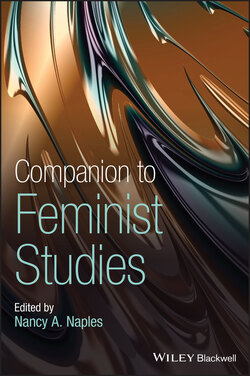Читать книгу Companion to Feminist Studies - Группа авторов - Страница 29
A Place for Biology but not for Determinism or Essentialism? Reclaiming the Body
ОглавлениеFor many years there was a widespread rejection within feminism, across all its manifestations, of any form of theory that included biological elements. To see any female characteristic as biological in its origins or mode of functioning was seen as tantamount to accepting that it was fixed and immutable. Biology and essentialism were thus seen to go hand‐in‐hand. In the late twentieth century, with the rise of social constructivist theory and the accompanying “linguistic turn,” the body and its functions were seen as texts where discourses about the body – often positioned as oppressive and unhelpful discourses – dictate what is experienced by the individual. Thus “the thought body” became a theoretical preoccupation for many feminist scholars and the material body remained problematic (Greene 2015). Although the shift to seeing social and discursive factors as the causes of difference and therefore the target for change was understandable and productive, one consequence was the exclusion of the physical from consideration and the perpetuation of culture‐nature, mind–body binaries. Also, as Grosz comments, social constructivist perspectives reduced “materiality to representation” (Grosz 2005, p. 172). In relation to sexuality, Plummer comments that the predominantly social constructivist view of sexuality has served to take attention away from the body and bodily acts but he notes a recent increase in interest in research into the embodiment of sexuality and forms of sexual expression (2012).
Ussher was among a number of feminist theorists who felt uncomfortable with this preoccupation with the discursive alone and argued accordingly for the need for a material‐discursive perspective (2006). In this century a number of feminist scholars have reembraced the material and the biological and there has been a return to some form of acceptance of the material reality of the body, with material‐discursive approaches and “the new materialism” becoming more popular (Barad 2003; Hird 2004). Such work resonates with the work of critics of mechanistic and reductionist perspectives within biology who are associated with the emergence of “the new biology” (e.g. Woese 2004). Importantly, the “new materialists” and cognate theorists have found ways to resist any form of biological determinism.
Currently, biological determinism is under attack from feminist scientists, from those who favor sociocultural determinants but also, even more importantly, from those who oppose the very idea that all human behavior is determined, either by biological or by social factors.
